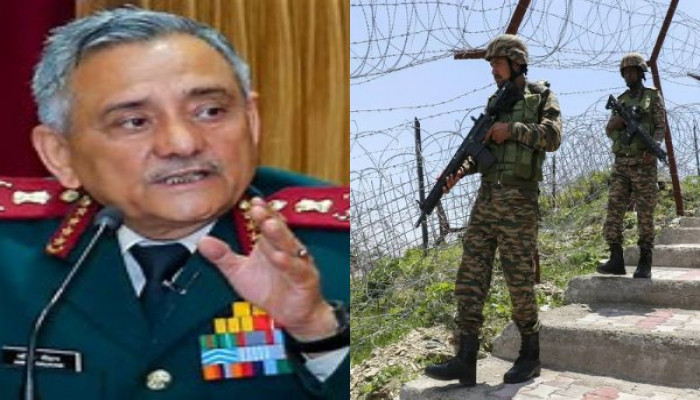India foiled Pakistan’s 48-hour war plan in just 8 hours: CDS Chauhan
- In Reports
- 06:26 PM, Jun 03, 2025
- Myind Staff
Chief of Defence Staff (CDS) General Anil Chauhan on Tuesday disclosed that Pakistan’s military aimed to weaken India within 48 hours by escalating cross-border attacks during Operation Sindoor. But India responded swiftly and precisely, forcing Islamabad to seek de-escalation within eight hours.
“On the 10th of May, around 1 am, their (Pakistan’s) intention was to bring India to its knees within 48 hours,” Chauhan said during a lecture at a Pune university. “They launched multiple attacks and escalated the conflict, although we only targeted terror camps. Their operation, which they expected to last 48 hours, collapsed within about eight hours, and then they called us wanting to negotiate,” he added.
General Chauhan noted that Pakistan’s mindset behind these actions was not new. He traced it back to 1965 when Zulfikar Ali Bhutto, Pakistan’s former Prime Minister and President, declared at the United Nations Security Council that Pakistan would wage a “thousand-year war” against India.
“In a 1965 speech to the UN Security Council, Zulfikar Ali Bhutto announced a thousand-year war against India,” the CDS said. “Recent remarks by Pakistan Army chief General Asim Munir echoed the same threats previously made by Bhutto,” he added.
CDS Chauhan also accused Munir of “spewing venom against India” just days before the Pahalgam massacre, where terrorists brutally killed 26 civilians.
Recalling the April 22 Pahalgam massacre, General Chauhan said, “What happened in Pahalgam was sheer cruelty. All victims were shot in the head in front of their families and children, and they were killed in the name of religion, which is unacceptable in today’s world.”
He said the attack caused “huge revulsion” in society and brought back memories of previous terror strikes on India. “This was not a lone terror attack. While Western countries may have faced one or two such incidents, India has suffered the most — nearly 20,000 people have been killed,” the CDS stated.
He added that the primary goal of Operation Sindoor, launched after the Pahalgam killings, was to end “state-sponsored terrorism from Pakistan.”
General Chauhan emphasised that India’s armed forces remained steady despite initial setbacks in the operation. “India’s professional forces did not suffer losses that affected their effectiveness,” he said.
He explained that both India and Pakistan developed new military capabilities, but not all had been tested in combat. “There is always risk involved, but as they say, you cannot succeed without taking risks. We knew we had a better counter-drone system.”
Chauhan confirmed that India suffered early losses in the air campaign, including fighter jets. “What I can confirm is that on May 7, during the initial phases, we did suffer losses,” he told Reuters TV, marking the first official confirmation from a senior defence leader.
Although Pakistan claimed it shot down six Indian aircraft, including three Rafales, General Chauhan firmly denied this. “That is absolutely incorrect,” he said in interviews with Reuters TV and Bloomberg TV at the Shangri-La Dialogue in Singapore.
He did not specify the number of jets lost but said the Indian Air Force learned from early mistakes. “The positive part is that we identified the tactical errors, corrected them, and then flew all our jets again two days later, carrying out long-range strikes.”
By linking the current crisis to Bhutto’s decades-old vow at the UN, General Chauhan highlighted Pakistan’s long-standing strategy toward India, a deep-rooted ideological hostility fuelled by state-backed terror and military provocations.
With Operation Sindoor, Chauhan said India sent a clear message: such provocations would face swift and strategic retaliation even when taking risks.







Comments